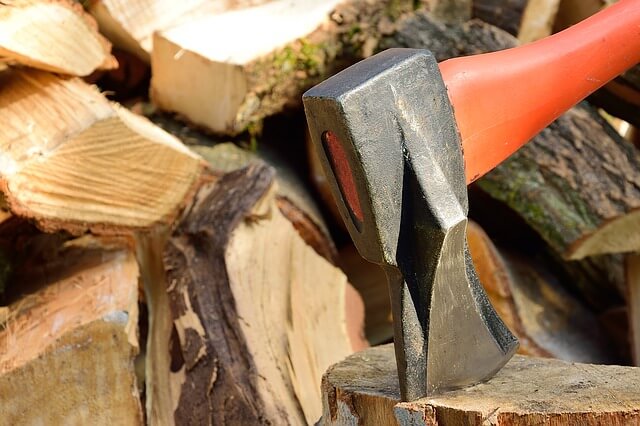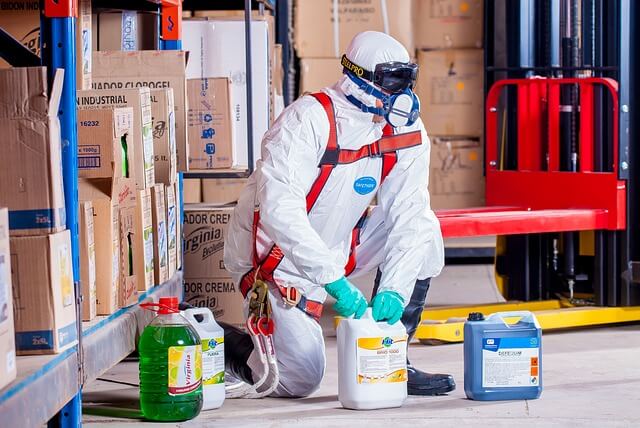There is a myth running among people, that say steel toe boots can be more dangerous for your toes when compared with by a regular boot. Some people believe that the steel of the boot itself can amputate your toes if a heavy object falls on your boot. It is tough to say when this myth started. Maybe somewhere someone faced this situation (cut off toes by the steel toe boot) but this is completely a wrong concept. Certified safety boots will be able to save your foot toes and legs from many disasters even from the heavy falling object.
Adam and Jamie have busted this myth in their Mythbusters episode 42. That is long ago, in 2013.
In this blog post, I will focus on how safety shoes are built and tested to protect you from an uncountable number of disasters in the workplace.
How are Safety Boots Tested to Be Safe for Your Foot?
All steel toe boots are not safe. You’ve to buy ANSI standard steel toe boots that will save you from many disasters.
How steel toe boots tagged as safety boots? What tests are done by ANSI?
Let me tell you one way.
They, at first, place some flexible substance inside your boot cap. Then they drop a 20 kg. or 44 lb. wedge directly onto the cap of the boot. After that, they check out the substance. If the substance differs a lot before and after the drop, the shoe does not pass the test and does not qualify as a safety boot.

So, you see, steel toe boots are not designed to protect you from all kinds of objects that can fall on your feet, but it will protect you from a good weight range object.
It’s true that some tissue damage can happen if a heavy object falls on your leg. But wearing a steel toe boot will protect you from cutting off or amputating your bones.
Steel toe boots are not only for protecting your toes
It’s your employer’s responsibility to provide you an accurate safety shoes for his specific workplace. And it’s your responsibility to wear the boot while you’re working. If you don’t wear boots while working and face any injury at the working place, you might lose the following things:
- Workers’ compensation
- Insurance coverage
- And even you can lose your job as you’re not loyal to rules and regulations
Select the appropriately rated boot for your working environment

The myth is believed by people on this ground: if a really heavy object falls on my boot with enough speed and force, this will break the steel cap of the boot and will amputate my toes. But you’ve to measure at first how much weight might fall on your foot?
And just I want to let you know that every work boot has a rating depending on how much weight it can withhold. So, choose a shoe that suits your working environment.
Who will pay for your boot?
So, you’ve nice leather shoes and you’re comfortable with them. And buying specialty shoes is not cheap. It might cost from $100 to $300. So, it will be a real pain for you to buy steel toe boots when you’ve some nice shoes at your home.
I want to relieve your pain.
According to OSHA’s 1910.132(h)(1) and (2), employers will provide all the safety outfits necessary for their working places. This clause is applicable only if the workers use the shoes only in the working compound, not outside of the worksite.
1910.132(h)(1)
Except as provided by paragraphs (h)(2) through (h)(6) of this section, the protective equipment, including personal protective equipment (PPE), used to comply with this part, shall be provided by the employer at no cost to employees.
1910.132(h)(2)
The employer is not required to pay for non-specialty safety-toe protective footwear (including steel-toe shoes or steel-toe boots) and non-specialty prescription safety eyewear, provided that the employer permits such items to be worn off the job-site.
Whether steel toe work boots are a necessary requirement for your working place or not, wearing one while working can protect you from many disasters even can save you from long-time disability. In some cases, some bad employers might not provide you a safety shoe, but I will advise you to buy a suitable work boot for you though it could cost you some money. Believe me, your toes and legs will thank you.




